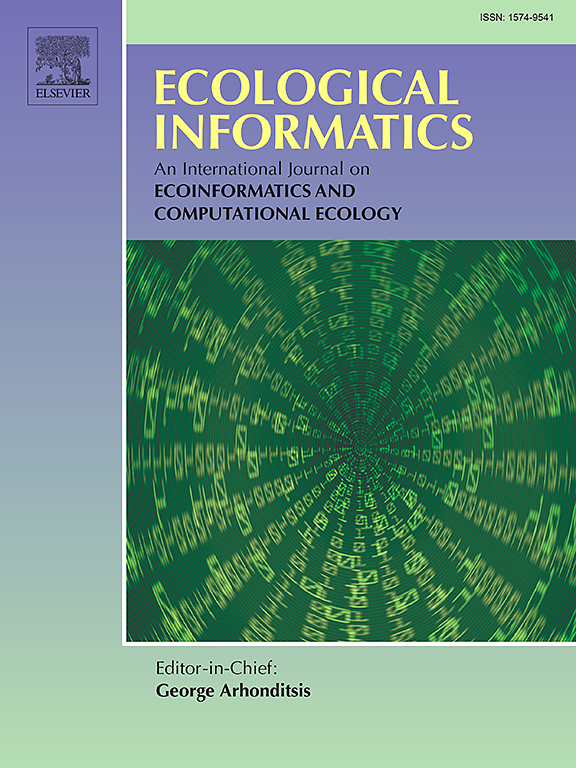AntPi: A Raspberry Pi based edge–cloud system for real-time ant species detection using YOLO
IF 7.3
2区 环境科学与生态学
Q1 ECOLOGY
引用次数: 0
Abstract
Ant detection is essential for ecological research, offering insights into biodiversity, habitat health, and environmental change. Traditional detection techniques rely on manual sampling methods, which are labor-intensive and time-consuming. Recent advances in autonomous, vision based systems show promise for insect monitoring, yet no dedicated, field ready solution exists for ant identification. In this work, we present AntPi, a deep learning based system for real-time detection and classification on a Linux development board. To the best of our knowledge, the system is trained on the first dedicated dataset for arboricolous ants, comprising five species and one morphotype, sourced from citizen science contributions and direct field captures. Our approach employs the “You Only Look Once” (YOLO) framework for efficient object detection, augmented with environmental sensors to enable correlation between climatic variables and ant activity. To evaluate performance and robustness, we compare AntPi with an alternative configuration, including controlled experiments using background-only images with artificial ant-like noise, and introduce a novel robustness indicator to assess reliability under realistic conditions. Experimental results demonstrate strong detection performance and confirm the feasibility of automated, in-field ant monitoring.
AntPi:基于树莓派的边缘云系统,使用YOLO进行实时蚂蚁种类检测
蚂蚁检测对生态学研究至关重要,可以深入了解生物多样性、栖息地健康和环境变化。传统的检测技术依赖于人工采样方法,劳动强度大,耗时长。最近自主的、基于视觉的系统显示了昆虫监测的前景,但还没有专门的、现场准备好的蚂蚁识别解决方案。在这项工作中,我们提出了一个基于深度学习的实时检测和分类系统AntPi。据我们所知,该系统是在第一个专门的树栖蚂蚁数据集上进行训练的,该数据集包括五个物种和一种形态,来自公民科学贡献和直接现场捕获。我们的方法采用“你只看一次”(YOLO)框架进行有效的目标检测,并辅以环境传感器,以实现气候变量与蚂蚁活动之间的相关性。为了评估性能和鲁棒性,我们将AntPi与另一种配置进行了比较,包括使用带有人工蚁类噪声的纯背景图像进行对照实验,并引入了一种新的鲁棒性指标来评估现实条件下的可靠性。实验结果显示了较强的检测性能,证实了自动化现场蚂蚁监测的可行性。
本文章由计算机程序翻译,如有差异,请以英文原文为准。
求助全文
约1分钟内获得全文
求助全文
来源期刊

Ecological Informatics
环境科学-生态学
CiteScore
8.30
自引率
11.80%
发文量
346
审稿时长
46 days
期刊介绍:
The journal Ecological Informatics is devoted to the publication of high quality, peer-reviewed articles on all aspects of computational ecology, data science and biogeography. The scope of the journal takes into account the data-intensive nature of ecology, the growing capacity of information technology to access, harness and leverage complex data as well as the critical need for informing sustainable management in view of global environmental and climate change.
The nature of the journal is interdisciplinary at the crossover between ecology and informatics. It focuses on novel concepts and techniques for image- and genome-based monitoring and interpretation, sensor- and multimedia-based data acquisition, internet-based data archiving and sharing, data assimilation, modelling and prediction of ecological data.
 求助内容:
求助内容: 应助结果提醒方式:
应助结果提醒方式:


